9 concert film favorites to watch now that you’ve seen Taylor Swift’s ‘Eras Tour’
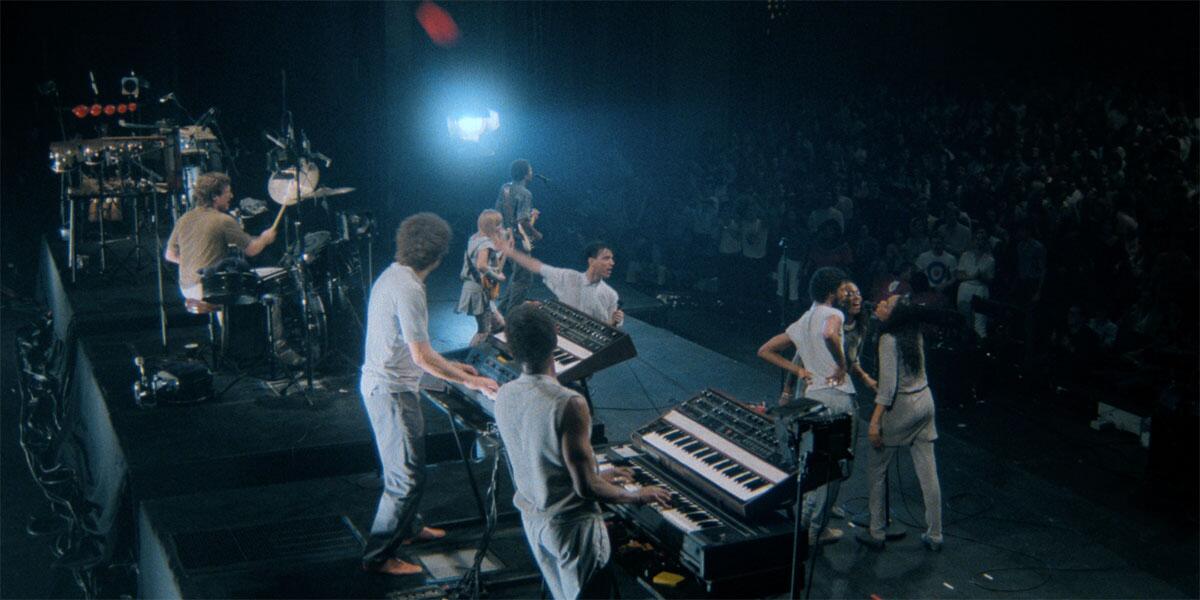
- Share via
Maybe you’re a Swiftie — or perhaps you’re only Swiftie-adjacent. Three hours of “Taylor Swift: The Eras Tour” will either be way too long for you or not nearly long enough. Undoubtedly, though, there are other concert films that capture that cellphone-hoisting, let’s-hit-the-merch-booth magic for you. Here are several of our picks.
‘Amazing Grace’ (2018)
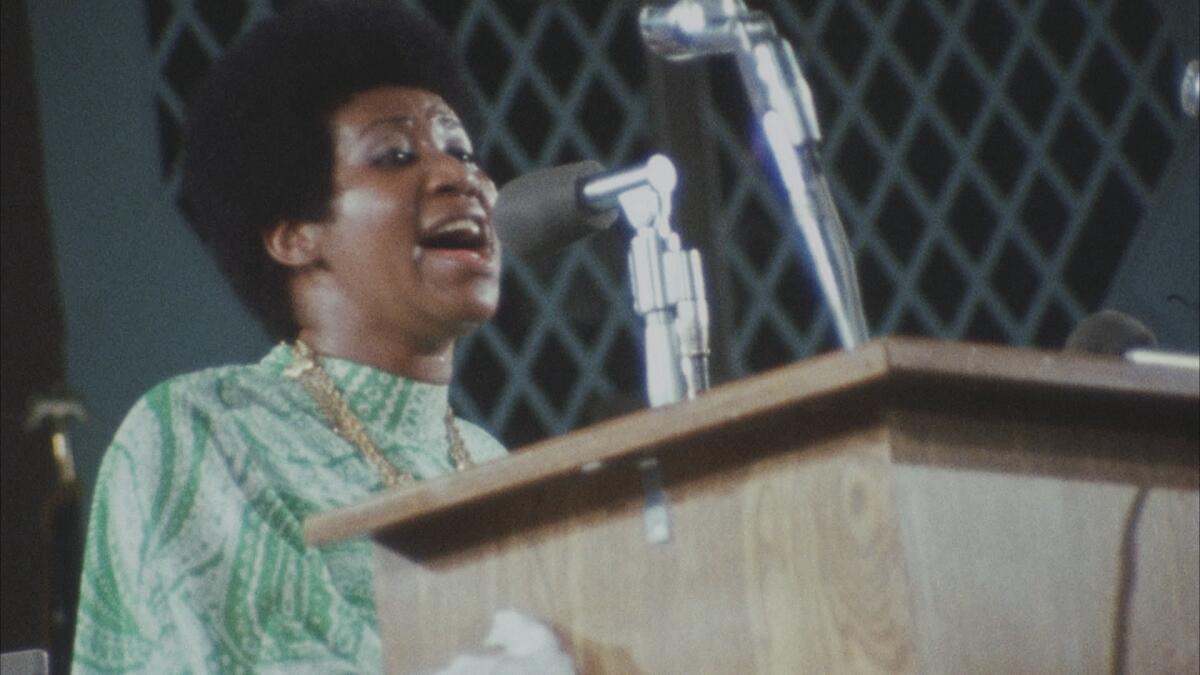
In 1972, Aretha Franklin recorded her legendary gospel album “Amazing Grace” at the New Temple Missionary Baptist Church in Watts. The stunning two-night event, performed with band, choir and congregation, was filmed on 16-millimeter cameras by director Sydney Pollack, but the footage languished for decades, unslated, unsynched and unedited, until a painstaking restoration effort got under way. Due to Franklin’s own opposition, it wasn’t until after her death in 2018 that, with her family’s blessing, the film could finally be shown publicly, whereupon it was rightly hailed as a masterpiece about the making of a masterpiece. To watch it now is to revel anew in Franklin’s off-the-charts musical brilliance (even her fellow performers seem overwhelmed) and to witness a depth of spiritual passion that feels genuinely miraculous. It once was lost but now is found. — Justin Chang
‘The Decline of Western Civilization’ trilogy (1981, 1988, 1998)
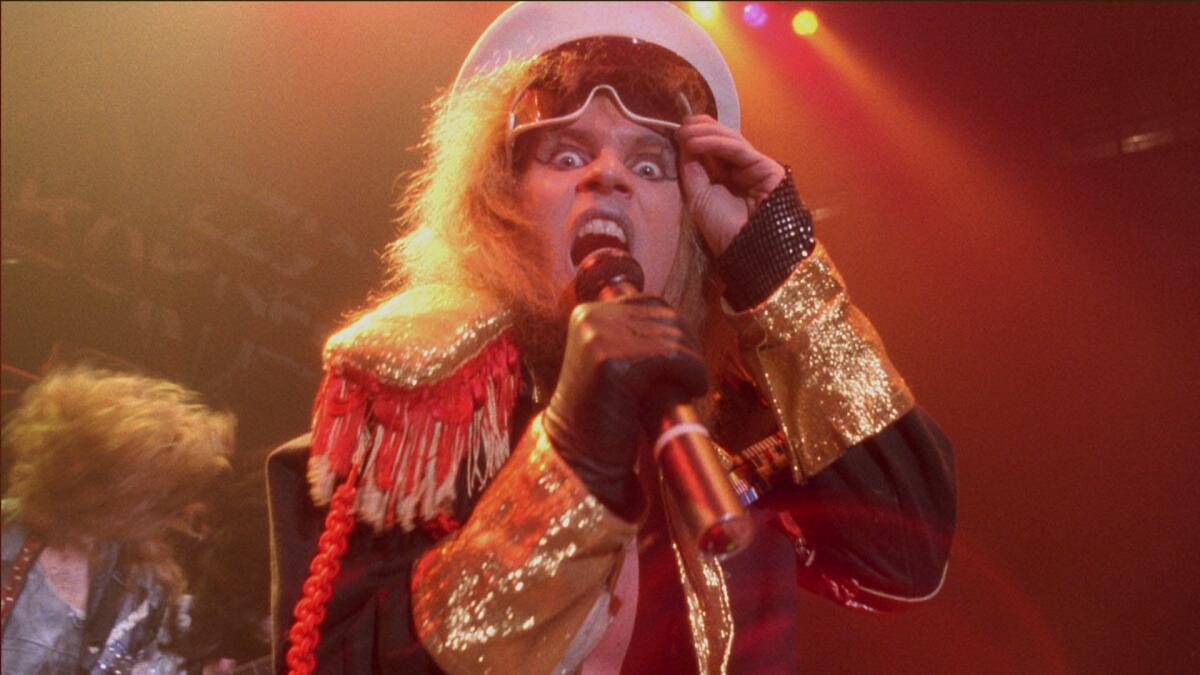
Penelope Spheeris’ 1979 punk documentary “The Decline of Western Civilization” made then-LAPD chief Daryl Gates so mad he wanted to ban it from ever being screened in the city again. Naturally, her wry and visceral scenes of L.A. legends like X, Black Flag, Circle Jerks, Alice Bag and the Germs did just the opposite. The film captured the city’s most explosive bands tearing up their stages and flophouses, making Spheeris the poet laureate of disenchanted young Los Angeles. (Its reputation helped land her the gig directing “Wayne’s World.”) A second installment on the city’s metal scene — with bombastic live sets and acidic musings from Megadeth, Poison, Ozzy Osbourne and Lemmy from Motörhead — is both comedy gold and a ferocious concert doc. A third and final film in the series, a bleak look at truly down-and-out gutter punk culture in L.A., suggested the scene was a last refuge for young people chewed up in Gates’ dreams for L.A. — August Brown
‘Depeche Mode: 101’ (1989)

Fans find this make-or-break moment in the British synth-pop band’s history particularly compelling: an American tour that climaxed with a sold-out show at Pasadena’s Rose Bowl. But even if you can’t stand the music (I pity you), there’s a major reason why this film makes our shortlist. In addition to concert footage and the usual backstage shenanigans, “101” included what was then something truly radical: a busload of teenage fans, following the tour and letting us into their own personal dramas. MTV took notice of the innovation and began to develop what would become the first season of “The Real World.” For better or worse, this concert doc invented modern reality TV. Not for nothing, legendary director D.A. Pennebaker called “101” his best film — the one he had the most fun making. Pennebaker also did Bob Dylan’s “Dont Look Back” and David Bowie’s “Ziggy Stardust and the Spiders From Mars,” but he’s absolutely right. — Joshua Rothkopf
‘Homecoming’ (2019)

The magic trick that drives “Homecoming” — Beyoncé’s account of her awe-inspiring 2018 headlining performance at the annual Coachella festival — is how she reveals all the work that went into the gig without leaving you even 1% less amazed as you watch what she’s pulling off onstage. A painstakingly imagined homage to the cultural traditions enshrined at America’s historically Black colleges and universities, the live concert wove together music and dance from throughout Beyoncé’s career with quotes and samples and interpolations from a deep archive of Black music and literature; the filmed version, which Beyoncé wrote and directed herself — and which came accompanied by a killer live album — comes as close as seems possible to capturing the thrill of being there in person (as I’m grateful to have been) while adding crucial detail and context to the experience. A joy, and a lesson too. — Mikael Wood
‘The Last Waltz’ (1978)
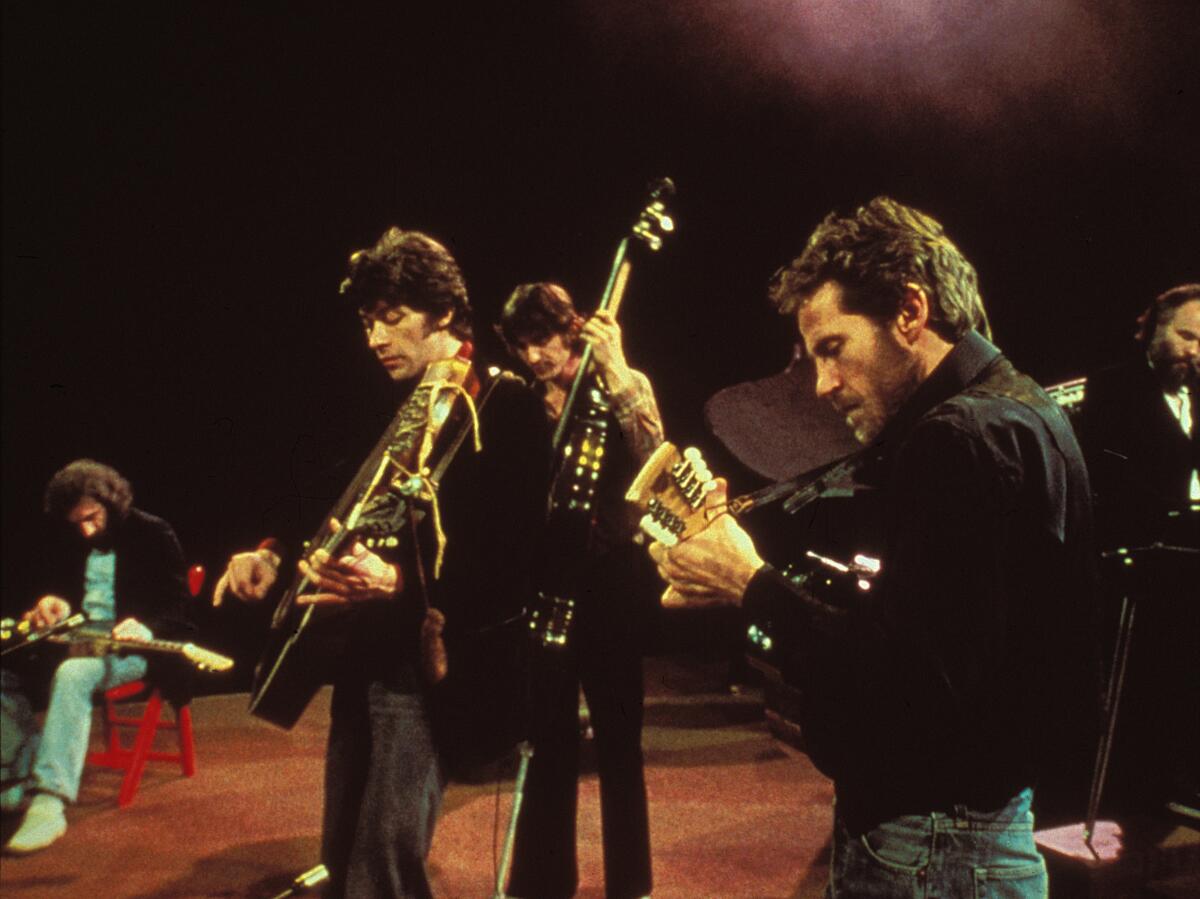
On Thanksgiving Day 1976, Canadian-American rock group the Band gave its final concert at San Francisco’s Winterland Ballroom, inviting a who’s who of musical luminaries — including Bob Dylan, Van Morrison, Neil Young, Joni Mitchell, Eric Clapton, Muddy Waters, Emmylou Harris and the Staples Singers — to help mark the occasion. Vividly captured by director Martin Scorsese and a camera crew featuring some of the era’s best cinematographers, the result proved far more than the final bow of a beloved group; as the title suggests, it represented a collective summation of an entire era in rock history. As the Band’s guitarist and songwriter Robbie Robertson says in the film, “We wanted it to be more than a concert. We wanted it to be a celebration.” With Robertson’s recent death leaving 86-year-old Garth Hudson the Band’s only surviving member, “The Last Waltz” now feels particularly elegiac, Still, 45 years later, the electrifying performances of classics like “Up on Cripple Creek,” “The Weight” and “The Night They Drove Old Dixie Down” remain as vital as ever. — Josh Rottenberg
‘A Prairie Home Companion’ (2006)
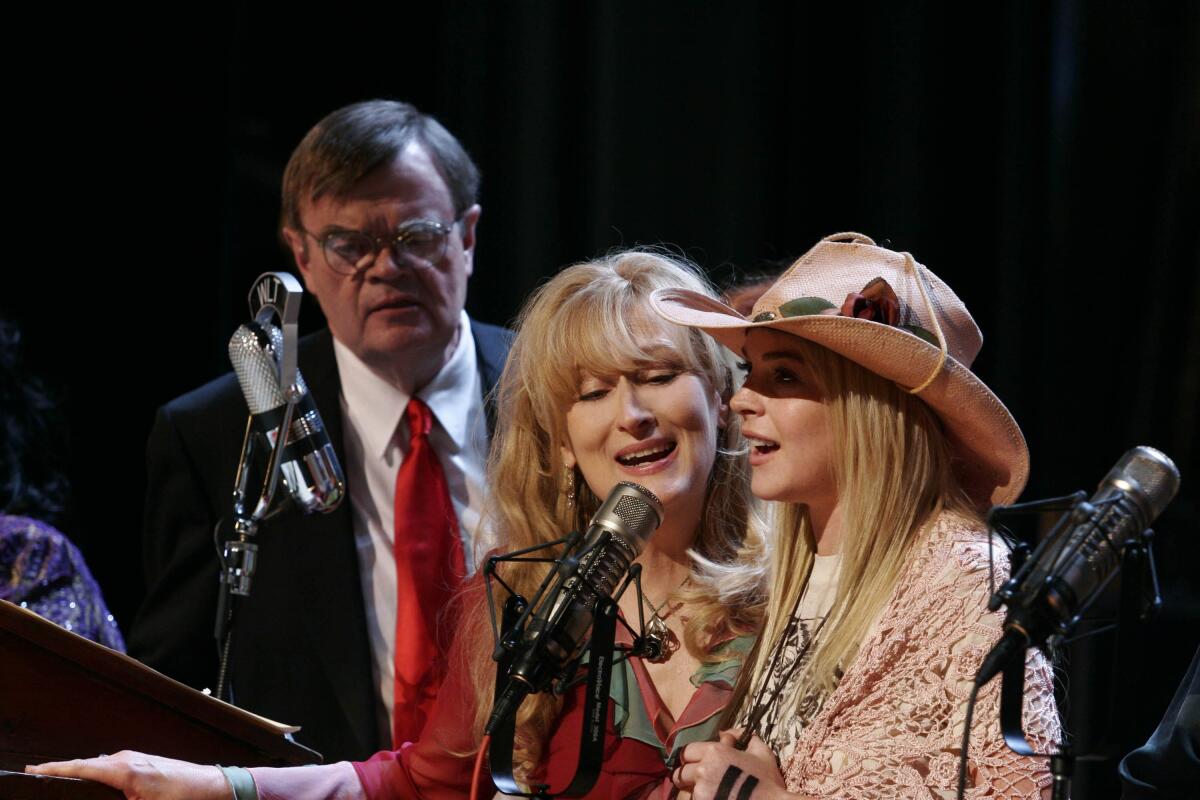
It may be unorthodox to select a scripted feature as one of the all-time great concert movies, but there’s no doubt in my mind that “A Prairie Home Companion” qualifies. Toggling between backstage shenanigans and spotlit bliss, this tale of the long-running radio program’s last broadcast bears all the hallmarks of the genre — creative friction, bone-deep camaraderie, an unswerving love of craft — in lively fictional form, with particularly entertaining turns from Woody Harrelson and John C. Reilly as comic cowboys and Lily Tomlin and Meryl Streep as singing sisters. Sure, the framing device, involving a P.I. (Kevin Kline) and an angel of death (Virginia Madsen), is a little contrived, and Garrison Keillor’s avuncular drawl may ring false to today’s ears. But as with so many of the titles on this list, you needn’t be a longtime listener for Altman’s camera, observing invention in action, to conjure up genuine magic. Indeed, I’d place “Prairie” among the most loving and lovelorn films of the master’s 50-year career: If the cast’s closing reprise of “Red River Valley” doesn’t leave you in tears, the knowledge that Altman made his final film an unobtrusive elegy for the popular arts almost certainly will. — Matt Brennan
‘Sign ’o’ the Times’ (1987)

Having already starred in the epic piece of autofiction and self-mythology that is “Purple Rain,” something like a simple concert film just wouldn’t do for Prince. So 1987’s “Sign ’o’ the Times” finds him showcasing songs from his masterful album of the same name, displaying his talents as live showman, multi-instrumentalist and utterly captivating screen presence. The electrifying version of “I Could Never Take the Place of Your Man,” for example, somehow finds him singing, whipping off guitar solos, working through choreography and spinning on block-heel boots all at the same time. There are fragments of a narrative involving an onstage love triangle, which allows for moments such as when Prince propositions one of his dancers and she bluntly turns him down, which you just know Prince thought was hilarious. Culled from footage shot at European concerts and his own Paisley Park soundstage in Minnesota, the film captures the breathtaking breadth of Prince’s talents, from ecstatic to soulful, dirty to divine. Prince being Prince, he directs too. — Mark Olsen
‘Stop Making Sense’ (1984)
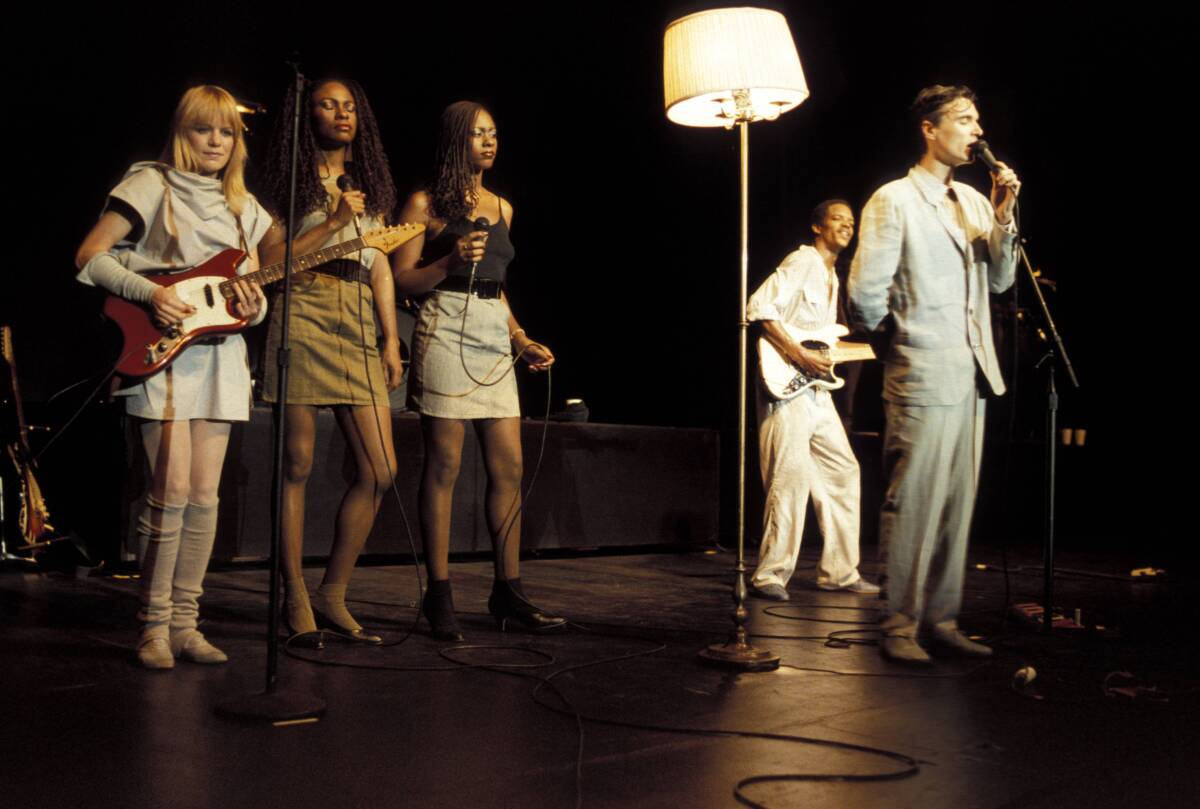
We didn’t need Spike Lee and Paul Thomas Anderson to tell us that “Stop Making Sense” is the greatest concert movie ever, though they did in fact say just that when Jonathan Demme’s 1984 joyride was rereleased in theaters last month in a new restoration. Firsthand evidence was there for the taking as multiplex audiences bopped their heads and, yes, got off their feet and moved to the music made by Talking Heads and an expanded lineup that included keyboard player Bernie Worrell, guitarist Alex Weir, percussionist Steve Scales and, most essentially, vocalists Lynn Mabry and Ednah Holt. The core band members are introduced individually, almost as characters, beginning with twitchy frontman David Byrne singing that anthem of alienation, “Psycho Killer.” From there, the music — and the staging — progresses and builds, culminating in the wide-shot communal ecstasy of Al Green’s “Take Me to the River.” Demme and cinematographer Jordan Cronenweth capture it all: the playful interactions, the lamp dance, the big suit. The movie’s 88 minutes fly by impossibly fast. Same as it ever was. But now everyone gets it for the masterpiece that it is. — Glenn Whipp
‘Summer of Soul’ (2021)
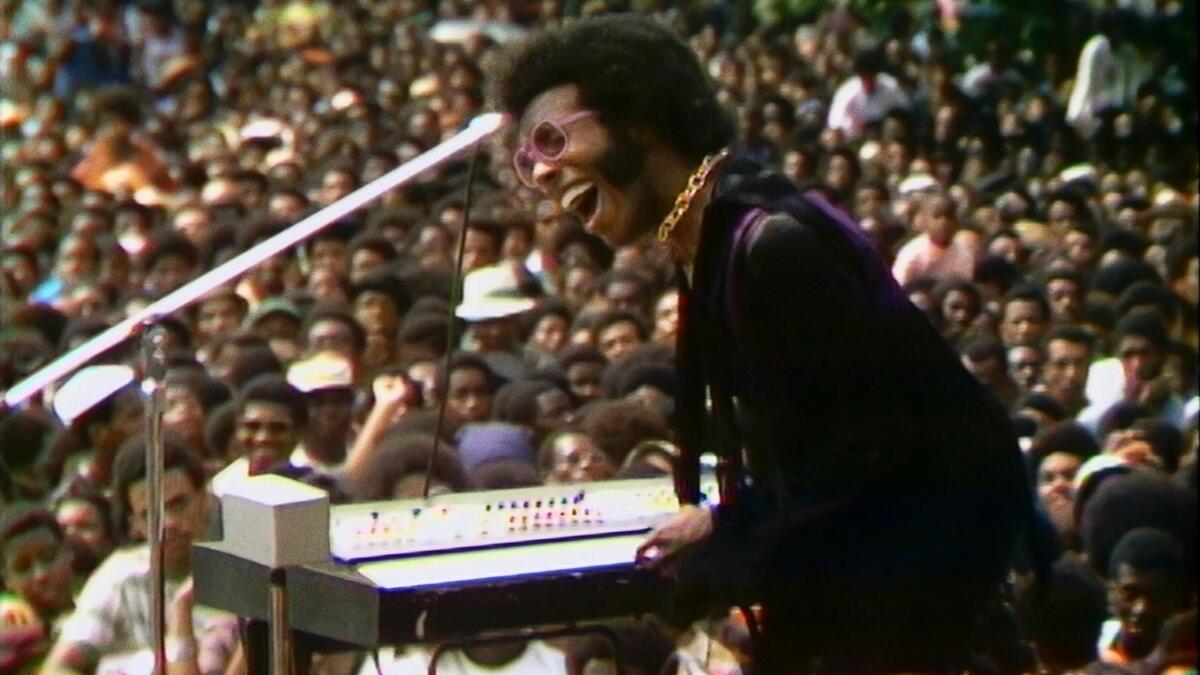
It’s an Oscar-winning love letter to the 1969 Harlem Cultural Festival, which placed performances from a 19-year-old Stevie Wonder next to gospel titan Mahalia Jackson in front of nearly 300,000 onlookers. Held at the height of the Black Power movement and one year after the assassination of Martin Luther King Jr., the spiriting concert series ran deeper than just the music — look to the teary-eyed faces of vocal group the 5th Dimension, appearing in the doc as they rewatch footage of their performance, as evidence of how much it meant. It’s a shame footage from the event remained discarded for 50 years, but Questlove, a walking music encyclopedia who came to prominence as the drummer for the Roots, was the one to unearth it. My favorite moment? Sly Stone’s refusal to depart the stage once his set had ended, instead drawing fervid peace signs from the crowd as he leads a call-and-response chant. — Kenan Draughorne
More to Read
Only good movies
Get the Indie Focus newsletter, Mark Olsen's weekly guide to the world of cinema.
You may occasionally receive promotional content from the Los Angeles Times.



















